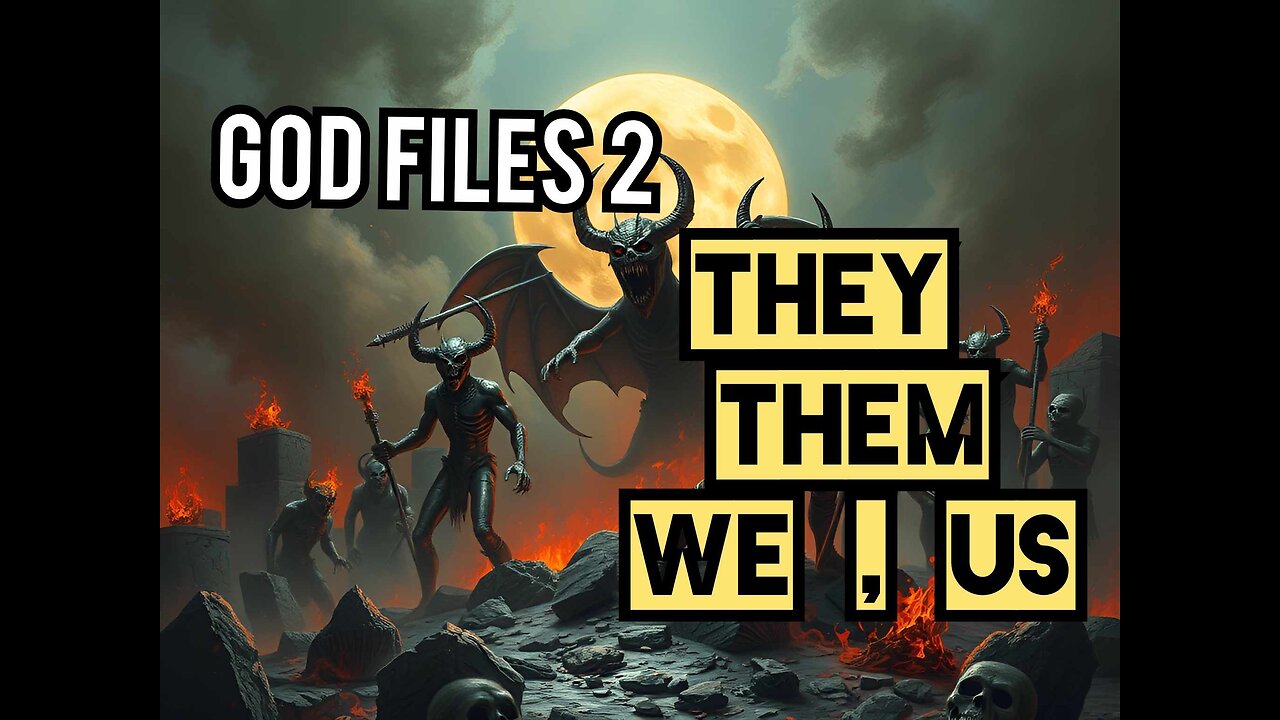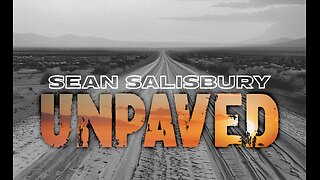Premium Only Content

How the Bible Refers to Demons as they , them we, Lets explore the unity in Texts, God files part 2
You Can Also Find Me Here!
Facebook 1 - https://www.facebook.com/realmikemartins
Facebook 2 - https://www.facebook.com/Realmikeinthenight/
Instagram - https://www.instagram.com/realmikemartins/
TIK TOK - https://www.tiktok.com/@mikemartins52
Threads - https://www.threads.net/@realmikemartins?
In the Bible, demons are often referred to with a variety of pronouns, including "they," "them," and "us." This can be seen in different contexts throughout the scriptures, where demons are depicted as spiritual entities that oppose God and seek to influence or possess humans. Let's break down the usage of these pronouns:
1. Demons Referred to as "They" and "Them"
In many instances, demons are referred to in the plural form, "they" or "them," emphasizing their collective nature as a group of evil spirits. For example:
Matthew 12:43-45 (KJV): "When the unclean spirit is gone out of a man, he walketh through dry places, seeking rest, and findeth none. Then he saith, I will return into my house from whence I came out; and when he is come, he findeth it empty, swept, and garnished. Then goeth he, and taketh with himself seven other spirits more wicked than himself, and they enter in and dwell there: and the last state of that man is worse than the first. Even so shall it be also unto this wicked generation."
Here, Jesus speaks about a demon referring to "seven other spirits more wicked than himself," and "they" enter the man, illustrating the use of "they" to describe a group of demons.
Luke 8:30 (KJV): "And Jesus asked him, saying, What is thy name? And he said, Legion: because many devils were entered into him."
In this passage, the demon identifies as "Legion," implying a large number of demons possessing the man. The use of "many" and "they" in subsequent verses underscores their collective presence.
2. Demons Using "Us"
In some cases, demons use "us" to refer to themselves when speaking through a possessed person, indicating a collective consciousness or shared identity among a group of demons:
Mark 5:9-10 (KJV): "And he asked him, What is thy name? And he answered, saying, My name is Legion: for we are many. And he besought him much that he would not send them away out of the country."
The demon-possessed man speaks in the plural, saying "we are many," and the demons collectively beseech Jesus not to cast them out, using "us" to signify their unity and shared intent.
Matthew 8:29 (KJV): "And, behold, they cried out, saying, What have we to do with thee, Jesus, thou Son of God? art thou come hither to torment us before the time?"
The demons, speaking through the possessed men, use "we" and "us" to address Jesus, showing their awareness of Jesus' identity and their collective fear of Him.
3. Implications of Pronouns Used for Demons
The use of pronouns like "they," "them," and "us" when referring to demons in the Bible reflects their nature as a collective group of spiritual entities that operate together in their rebellion against God. This collective language emphasizes several key points:
Collective Presence: Demons are often depicted in groups, showing a sort of unity in their opposition to God and humans. The use of "they" and "them" underscores their collective actions and influence.
Shared Consciousness: When demons use "us" and "we," it suggests a shared consciousness or purpose, often when speaking through a person they possess. This can indicate their unified stance against divine authority and their communal fear of judgment.
Existential Awareness: Demons are portrayed as having self-awareness and a sense of their impending judgment, which they often express using "us" when confronted by Jesus, highlighting their recognition of His authority and their own doom.
demons in the Bible, spiritual warfare, evil spirits, biblical demons, Jesus and demons, Legion demons, collective consciousness, demonic possession, Bible teachings, unclean spirits, biblical exorcism, spiritual entities, demonic influence, Satan and demons, Bible scripture, fear of demons, spiritual battles, divine authority, possession by demons, New Testament demons, Old Testament demons, religious studies, theology of evil, Christian doctrine, biblical narrative, demonology, spiritual discernment, power of Jesus, divine judgment, supernatural beings, exorcism stories, spiritual oppression
-
 18:12:15
18:12:15
Mike Martins Channel
1 month ago $0.98 earned24hr Mike in the Night Othon - Best of Mike in The Night!
5.72K6 -
 LIVE
LIVE
Sean Unpaved
16 hours agoSwitch-Hitting Stories: Chipper on Baseball, Football, & the Game's Future
140 watching -
 LIVE
LIVE
Dr Disrespect
2 hours ago🔴LIVE - DR DISRESPECT - IMPOSSIBLE 5 CHICKEN DINNER CHALLENGE - FEAT. VISS
2,526 watching -
 LIVE
LIVE
StoneMountain64
20 minutes agoOnly game with BETTER desctruction than Battlefield?
105 watching -
 LIVE
LIVE
Timcast
1 hour agoTrump SLAMS Anti-American Museums, BANS Migrants For WOKE Views
13,871 watching -
 5:46
5:46
Buddy Brown
23 hours ago $0.15 earnedOklahoma Just Made the BOLDEST MOVE of our Time! | Buddy Brown
3035 -
 2:01:04
2:01:04
Steven Crowder
4 hours agoThe Gavin Newsom 2028 Campaign Begins... And It Sucks
197K163 -
 11:25
11:25
Mike Rowe
1 day agoThe Funniest Mashup You've Ever Seen With My Mom, Peggy Rowe | Coffee With Mom
6.37K7 -
 1:23:33
1:23:33
Steve-O's Wild Ride! Podcast
6 days ago $13.77 earnedRainn Wilson and Steve-O Break The Silence On Their Long Friendship | Wild Ride #263
42K29 -
 1:00:17
1:00:17
VINCE
5 hours agoThe Trump Admin Isn't Having This... | Episode 107 - 08/20/25
173K115